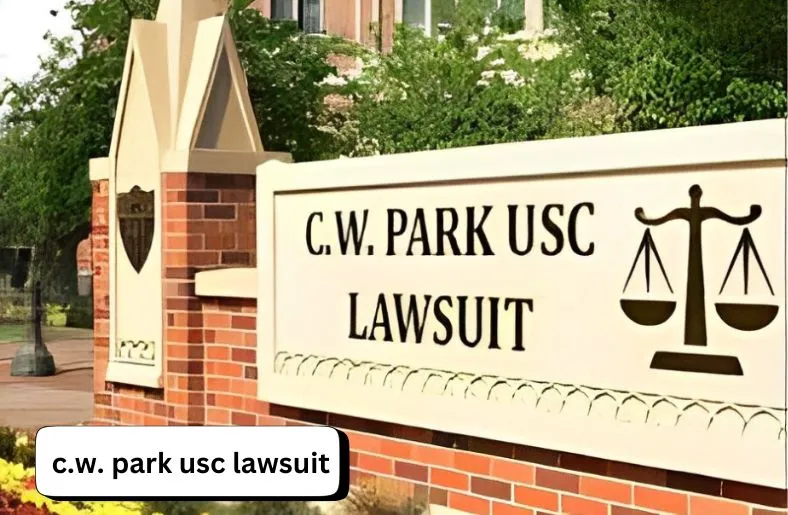Things that are legitimate may change after some time, and new verification might have come to light meanwhile. It definitely should peruse the newest news sources.
What effect has the USC case against C.W. Park had on academic genuineness?
Many individuals in the academic world were shocked by the court case including C.W. Park USC lawsuit, which made individuals question how committed the school is to academic genuineness. The C.W. Park USC case has been in the news a great deal of late because it shows how complicated the relationship is between law and schools. A many individuals are worried that this legitimate wreck could hurt USC’s picture and academic principles.
Because the case had a great deal of complicated circumstances, it has prompted conversations about colleges’ obligation to maintain academic honesty and what happens when this obligation is addressed. Certain individuals are worried about the possibility that that the lawful issues of staff individuals will spread to different understudies and cause them to lose confidence in the school.
What effects did formal guidelines have on the court process?
In the complicated web of lawsuits, institutional policies have frequently come up as vital participants that affect how court cases are battled. The judicial story in the C.W. Park case was formed by the guidelines and guidelines of USC’s establishments. In this critical case including C.W. Park and the College of Southern California, it became clear how significant institutional policies are in forming the outcomes of lawsuits.
The complicated institutional structures that the C.W. Park USC lawsuit occurred in show how the standards of educational organizations can hugely affect the way legitimate cases are dealt with. As the case went on, obviously the contentions made and the importance of USC’s principles formed the appointed authority’s decision.
Reaction by C.W. Park to Past Claims in the USC Lawsuit:
To set the current case against Teacher C.W. Park in its legitimate context, it is essential to know how the College of Southern California (USC) has reacted to past claims. Rape and provocation are awful issues that immensely affect the existences of the people who are victims. The C.W. Park USC lawsuit is a sharp warning of this. It shows that colleges and schools have an obligation to protect their understudies from rape and give them the assist they with expecting to mend. This article carefully describes the supposed wrongdoing, how USC has managed comparable circumstances previously, the means that were taken, and how well these means have worked in fixing issues at the college.
Individuals Affected
Individuals and gatherings inside and beyond USC were affected by the C.W. Park USC lawsuit in ways that go past the law. There are various ways that understudies, teachers, chiefs, graduated class, and individuals in the community as a whole interact with the occasions. It ultimately depends on Teacher Park to show that his terminating, despite the fact that he was equipped for the gig, occurred such that makes individuals consider racial or orientation inclination. This could include verification of uncalled for treatment of teachers from various backgrounds or sexual directions.
Changes to USC’s policies and advanced education
USC’s standing is in danger because of the C.W. Park lawsuit, which additionally affects different pieces of advanced education. Because of this occasion, schools’ capacity to protect understudy wellbeing is now truly called into question. The educational divisions are all in a predicament because of these charges. Because of this, USC has set up new principles and plans to ensure the issue doesn’t reoccur. In any case, it’s not satisfactory how well these means will work.
Issues that the academic sector is having
The lawsuit documented by C.W. Park against USC has wide effects that could hurt the notorieties of numerous colleges, not simply USC. There are a ton of understudies who want to sue collectively, saying that their Title IX privileges have been truly disregarded. There were lawsuits against USC in 2021 from current understudies and teachers who said the school encouraged a “culture of silence” about sexual misconduct. This case, similar to Park’s, could change how establishments are considered dependable in class action lawsuits. It is feasible to begin significantly greater class actions in the event that evidence of prejudice and reprisal is found.
How about we dissect it?
Investigating An uncharted Area Controversy has recently swirled around the C.W. Park USC case. Academic opportunity, institutional uprightness, and prejudice are at the core of this lawful conflict that Teacher C.W. Park has delivered for USC’s benefit.
The Claims
Renowned promoting and consumer conduct master Teacher C.W. Park USC lawsuit abused his privileges. He claims that he was the objective of racial profiling and resulting backlash. According to Park, he was dealt with unjustifiably and with ill will by college officials because of his background in international concerns. The claims make one wonder how truly USC takes its central goal to help variety and balance in the classroom.
The Risk to Academic Opportunity
This case is about free speech in the classroom. When it comes to study and free thought, colleges are like safe houses. Representatives and teachers ought to have a solid sense of security standing up on campus. The claims put USC’s commitment to academic principles — the protection of free thought — under question, on the off chance that they are legitimized. This case additionally shows how significant it is for schools to think about inclination when it occurs on campus.
Fields That Meet
Since the case, C.W. Park USC lawsuit has been exceptionally clear about its commitment to variety and correspondence. The school puts a ton of importance on saving a well disposed and welcoming climate for all teachers. USC has started its own reviews and has vowed to deny the lawsuit’s claims firmly. The outcome of this court case will affect how colleges satisfy their commitments of variety, inclusion, and academic opportunity.

